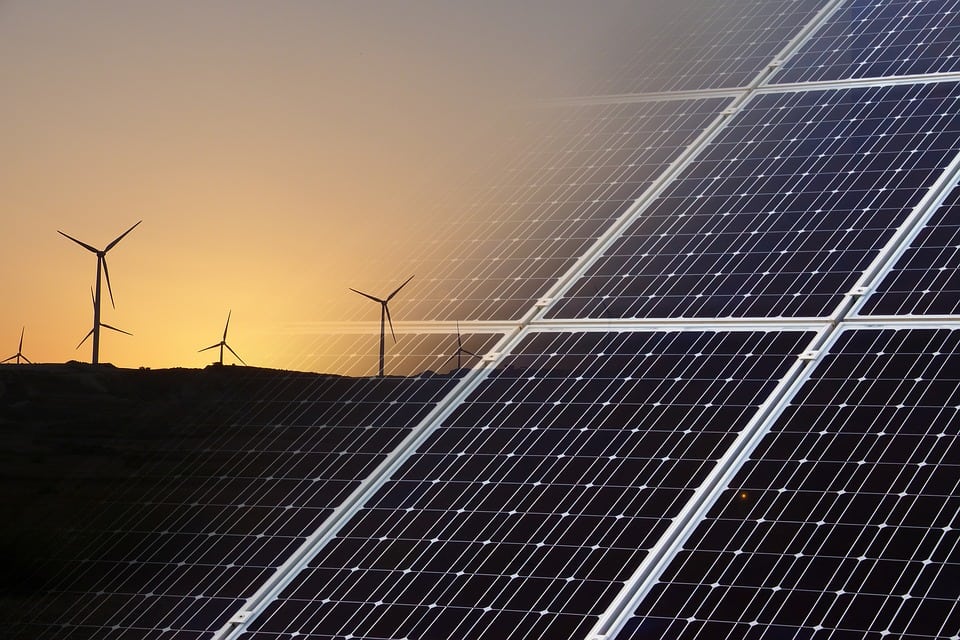Over the weekend, we not only got a new PM – we got two new ministers for Environment and Energy. Here’s a rundown of who they are and what we can expect from them.

Last week was chaos. Australia has yet again been thrown into turmoil and instability because the Government is not capable of agreeing on a climate policy, no matter how weak that policy is.
On Sunday afternoon, I looked at the list of new ministers who are ultimately responsible if they manage to pull their finger out and actually do anything meaningful to address climate change.
Melissa Price is your new environment minister and Angus Taylor is set to be our energy minister. To be honest, I had never heard of these people.
So let’s work out if this is good news, bad news or just the same old news.
Ok, let’s look at the new Ministers.
Josh Frydenberg, the architect and negotiator for the National Energy Guarantee (the NEG) is now our treasurer. His dirty power plan would have done nothing to reduce Australia’s emissions and would have driven up power prices.
His old portfolio of Energy and Environment has now been separated into two separate portfolios with two new ministers. One from the Dutton camp [1] – Angus Taylor is your newly appointed Energy Minister. The second from the Turnbull/Morrison camp [2] – Melissa Price has been promoted from assistant to Environment Minister.
Who’s Angus Taylor?
Taylor is a former lawyer for the mining industry, representing the safe seat of Hume in NSW, near Goulburn. On climate, he has advocated against wind farms, argued to scrap the LNPs renewable energy target and called climate change a ‘religion’ [3].
He has been heavily involved in anti-wind campaigns and thinks ‘wind turbine syndrome’ is a thing [3]. I would like to note here that ‘wind turbine syndrome’ is a phenomenon created by silly climate deniers who love fossil fuels and has never been recognised by any international disease classification [4].
Surprisingly, Taylor is a strong supporter of Snowy Hydro – whether that means he supports hydro or just because his granddad started it is unclear [3].
In the 2013 election, when Taylor first entered into federal parliament, he released a report via his old firm Port Jackson Partners. The report argued that the Liberals should drop their renewable energy target and the modelling claimed households would save up to $3.2 billion (or up to $300 a household) by 2020. This guy is obviously not ideal. On top of this, Morrison has given Taylor an agenda. Taylor is to be the “minister for getting energy prices down.” [3].
You and I both know the best way to do that is through renewables, but something tells us that’s not what they have in store.
Who’s Melissa Price?
Ok, so what about Price? Maybe she’ll do something to address the Coalition’s paralysis on climate action. Right?!
Melissa Price is a regional MP from Western Australia. She grew up in Kalgoorlie, a rural area known for its gold and iron ore. A lawyer by trade, she worked for a resources company in the Iron Ore business [5].
As the assistant Minister for Environment, her responsibilities were climate adaptation and resilience, biodiversity, chemicals, waste, air quality and ozone policy, and was the director of Australia’s national parks. So she’s not an anti-wind energy campaigner which is great, but we are starting from a low bar here people. [5]
She supported Greg Hunt’s (Abbott Government Environment Minister- gosh there has been so many I can’t keep up) “Direct Action Plan” (aka giving big polluters money in the hope they do the right thing, with no way of forcing them to do so). [6]
Clearly, both are not great choices for those of us who would like to maintain living on Earth with water and food.
What’s the go with separating the portfolios?
In the Howard years, there was no Climate Change Minister or Energy Minister. Only under Kevin Rudd, was a climate change ministry created, with energy also added to the mix alongside resources. [7]
Abbott, the grown man who thinks he is smarter than 99% of climate scientists and who called climate change “absolute crap” [8], scrapped that ministry quick smart. It wasn’t until 2016, under Turnbull, did energy and environment get thrown into the same bag. Well, we all know how that ended. That NEG thing was a bit of a disaster (whatever that even was) – resulting in the great civil war of the Liberal party of 2018.
The separation of the portfolios seems to represent the direction Morrison wants to take on climate; an energy policy around price reduction (even though it doesn’t make sense – expect coal to feature heavily), rather than emissions and an environment agenda focused on conservation – ignoring climate change.
Basically, Morrison is trying to de-politicise the issue. It’s not for the sake of addressing climate change, but instead to quell the unrest within his climate denier-studded party.
We had 10 years of instability and inaction now. We had it under Labor when the big polluters caused their civil war and now the Liberals who managed to implode spectacularly, to the country’s embarrassment.
Consistent polling and surveys across the spectrum state the majority of Australians want the Government to address climate change and focus on renewable energy. [8] . But what Australians think doesn’t seem to be a big part of the decision making process right now. We need to change that.
We can’t sit back and let Australia continue be ruled by wealthy coal barons and their puppets. We simply don’t have time. Large parts of Australia are suffering from extreme drought and bushfires this winter. That’s why we’re calling for an election.
We need to put humanity back into this process. We need climate action to be at the heart. We can’t let Scott Morrison settle into his throne of coal the Minerals Council is no doubt sending his way.
Join us. Demand a say. Demand an election now.
[1] http://theconversation.com/dutton-camp-presses-for-quick-second-leadership-ballot-101997
[3] https://reneweconomy.com.au/morrison-names-leading-anti-wind-campaigner-as-energy-minister-49560/
[6] http://melissapricemp.com.au/Media-News/Speeches/ID/594/Turnbull-Government-on-Climate-Change

